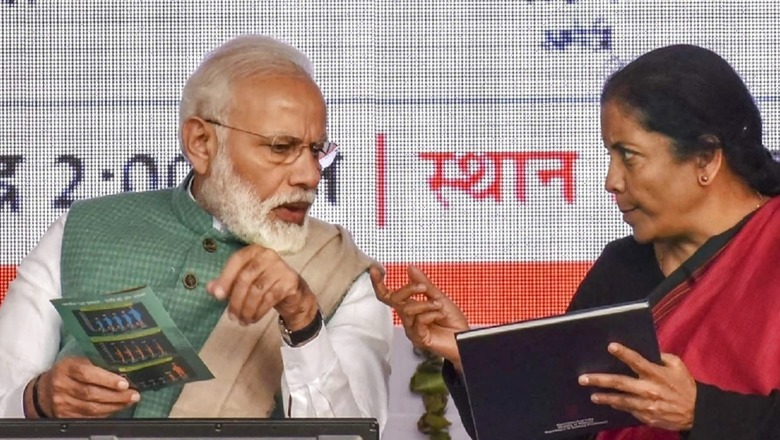
views
Finance minister Nirmala Sitharaman will present her final Union Budget on 1 February 2023, before the general elections scheduled to be in 2024. This Budget 2023 is being projected as a differential Budget, being the first post-pandemic Budget and also the last full-year budget ahead of the aforesaid Lok Sabha elections. While tax collections have been robust this financial year to cushion revenues and projections, the forthcoming Budget in its proclamations, will also have to take into consideration the significant challenges predicted for the Indian economy, due to global economic downturns, emergence of fears of global recession, and geo-political concerns like the Russia – Ukraine crisis.
The Goods and Service tax (GST) regime completed five years in 2022. While the first five years have been punctuated by fits and starts along with significant developments, there are key aspects of the regime that are yet to be implemented. It is a core desire of the industry to see the GST Appellate Tribunal being functional this year, and the setting up of the same is a major expectation of Budget 2023. This is particularly important as writ petitions concerning GST have increased manifold in state High Court(s) in the absence of the Appellate Tribunal, leading to an increase in caseload and delays in appellate remedy for taxpayers. A provision for a Centralized Authority, to address issues and confusion arising from contradictory orders passed by GST Authority for Advance Rulings, in different states, is also an ask of the industry to be taken into consideration.
This time, expectations also feature around the implementation of the recommendations of the GST Council, particularly on matters related to raising the threshold limit for launching criminal prosecution; rationalization of tax rates and further steps to abolish the inverted credit structure; and expectations to rationalize provisions of availing input tax credit by recipients of supply. To the last end, today the input credit structure puts the onus of correctness of availing credit on the recipient, even for compliance / non-compliance of vendors. It is a long-standing desire of the industry that these provisions are examined, and certain practical rationalisations implemented to make the provisions friendlier for businesses.
Other key expectations from Budget 2023 are clarities on the taxation of Virtual Digital Assets like Cryptocurrency and NFT(s) and the taxation of online gaming platforms. The implementation of recommendations of the panel of ministers to the GST Council, with reference to tax rates and valuation of services by online gaming platforms, should be operationalised to prevent large scale confusion and scare-mongering in the industry.
On the Customs front, duties on non-essential goods like high-end electronic/ luxury items may be increased to prevent dependency on imports and to promote manufacture of the same in the domestic industry. On the issue of Customs duty cuts, since India is experiencing an overhaul of its domestic telecom network to 5G technology, and the infrastructure for the same has to be mostly imported, a rate cut on the import of such infrastructure is a key expectation from the telecom industry. Customs duty reduction on medical devices where the ability to substitute imports is still some time away should also be considered to fulfil the promise of the government to provide low-cost affordable health care.
Technological advancements should also be promoted in Budget 2023 and the Government should focus on incentivising or promoting technology to make India a talent hub for emerging technologies. Tax incentives on capital expenditure for expansion, capacity utilisation and use of new age technology applications like Internet of Things (IoT), Machine Learning (ML), etc. should be actively considered in this Budget. A push to implement blockchain technology in the regulatory ecosystem is also welcome, with pilot projects already been conducted successfully to introduce such technologies in Customs operations earlier, with satisfactory results.
It will be interesting to see how Budget 2023 unfolds in light of the myriad industry expectations. To set an evolving path of recovery and towards an outlook on the future, the Budget should aim to strike a balance between focussing on collection as well as providing impetus for the industry to recover from the bruises from the pandemic, especially when there is growing forecast of further economic downturn. Budget 2023 should not be overtly populist but seek to draw a fine line between industry expectations and the fiscal realities of the economy. It should be pragmatic to navigate the challenges of the financial year while continually supporting the emerging domestic industry.
By Rajat Bose, Partner and Neeladri Chakrabarti, Consultant – Shardul Amarchand Mangaldas & Co.




















Comments
0 comment